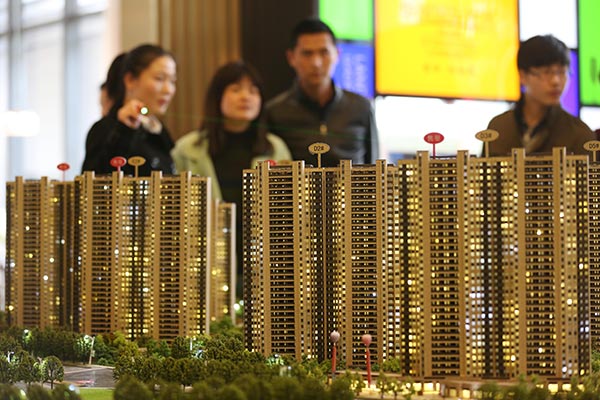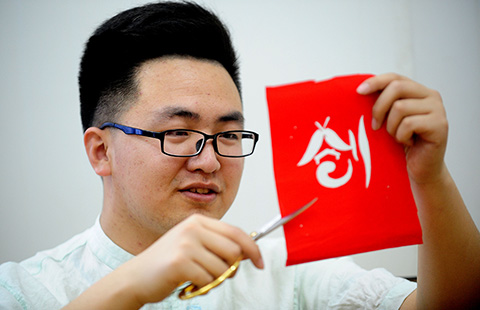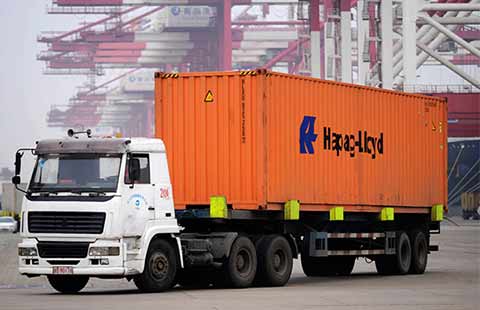Second-tier cities see biggest increase in home prices in March
By Wu Xiaobo (chinadaily.com.cn) Updated: 2016-04-21 17:21
 |
|
Potential homebuyers examine a property project model in Nanjing, East China's Jiangsu province, Feb 28, 2016. [Photo/VCG] |
China's second-tier cities have come to the fore in home price front following tightened regulation in some first-tire ones.
The latest statistics on housing prices released by the National Bureau of Statistics (NBS) indicate that Xiamen took the lead in increase in new commercial house price in March, replacing the former top runner Shenzhen.
New home prices in the coastal city Xiamen in Southeast China's Fujian province rose 5.4 percent from February, followed by a 4.6 percent increase in Hefei, capital of East China's Anhui province.
Moreover, Hefei overtook Beijing and Shanghai to secure the top place in home resale prices with a 9.3 percent month-on-month increase.
Behind the rise
The dazzling performance of the second-tier cities came after Shenzhen and Shanghai took measures to rein in the red hot property market by raising down-payment loans for second-hand houses and lifting the threshold for second-hand home buyers.
The frenzy in first-tier cities have spread to other major cities, said Zhang Dawei, chief analyst with Centaline Property, a real estate agency, as quoted by 21 Century Business Herald.
In Zhuhai, South China's Guangdong province, residential home prices have kept rising since the beginning of this year, hitting a record high of 14,668 yuan ($2,264) per square meter, according to statistics by Centaline Property.
The average housing prices in Xiamen exceeded 20,000 yuan per sq m in the first quarter, higher than the first-tire city Guangzhou.
In some areas in Nanjing, capital of East China's Jiangsu province, home prices reached up to 40,000 yuan per square meter, raising concerns of local pricing authorities.
Property developers' zest for land in second-tier cities is another major factor driving local housing prices.
In the first three months, key property developers spent 63.65 billion yuan on land acquisition in second-tier cities, representing 53.6 percent of the total land purchase expenditure, according to Centaline Property.
The land premium rate in second-tier cities have reached a three-year high of 53.07 percent in Q1, noted CITIC Securities, a securities broker, in a real estate research report.
Destocking in process
The boom in the property market has driven up China's GDP to a certain extent. It also showed that the governments' "de-stocking" policy have taken some effects.
According to the NBS' preliminary estimates of Q1 GDP, the amount of real estate industry came to 1.08 trillion yuan in absolute terms, up 9.1 percent year on year, the largest rise among all sectors.
The fast rises in home prices mainly existed in first-tier and some of the hotspot second-tier cities, and the prices in the remaining second-tier cities and the third-tier ones were relatively flat, said Liu Jianwei, senior statistician with the NBS.
In general, a majority of provinces and cities are still trying every means to destock, he added.
Further regulation in pipeline?
Following the rapid rises in home prices, some local authorities have started to take action.
On March 19, the local land authority in Nanjing announced its land supply plan for 2016, which increased the annual supply by 30 percent from the previous year.
On March 28, the banking regulator of Jiangsu province issued a document, asking for strict examination of the sources of down-payment loans and alerting potential financial risks in cities like Nanjing and Suzhou.
Market players are guessing whether Nanjing will follow the suit of Shenzhen to raise down-payment loans for second-hand homes.
Frequently refreshed land-bidding price records, coupled with the fact that land prices were even higher than the existing housing prices in some areas, may make some second-tier cities the next target of stricter regulation, said Zhang.
- Second-tier cities see biggest increase in home prices in March
- Financial and technology companies ranked most authentic brands in China
- Chinese banks' forex sales rise mildly
- Alibaba to expand operations to Australia
- China's domestic capital dominates real estate investment market
- LeEco rolls out tech breakthroughs
- Business jets market projected to become multi-billion sector
- Concerns of China nearing debt crisis overblown: Report

















